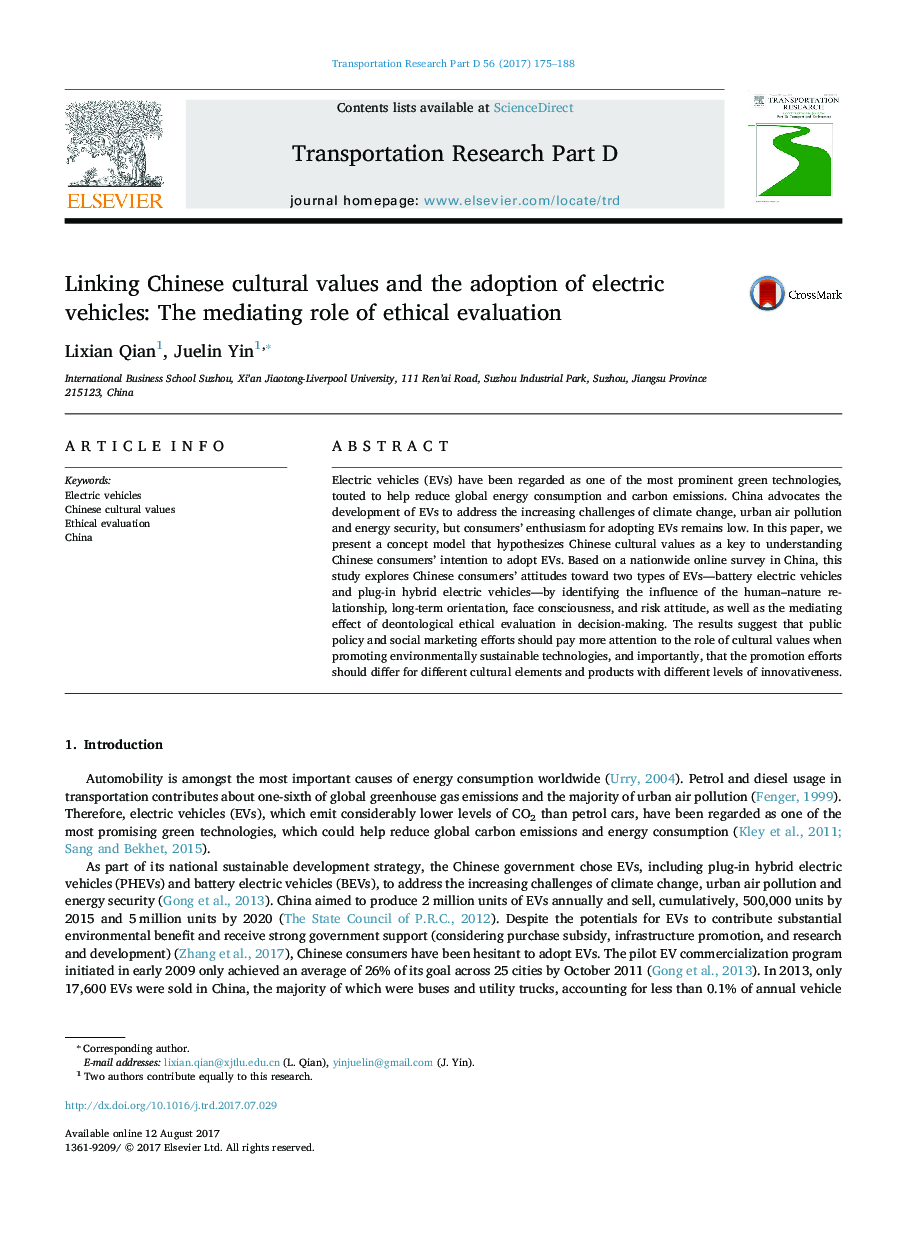| Article ID | Journal | Published Year | Pages | File Type |
|---|---|---|---|---|
| 5119340 | Transportation Research Part D: Transport and Environment | 2017 | 14 Pages |
â¢The influences of three cultural values on Chinese consumers' adoption intention to electric vehicles (EVs) are investigated.â¢The mediating role of deontological ethical evaluation in between is identified.â¢The mediation effects differ for different cultural values and different types of EVs.
Electric vehicles (EVs) have been regarded as one of the most prominent green technologies, touted to help reduce global energy consumption and carbon emissions. China advocates the development of EVs to address the increasing challenges of climate change, urban air pollution and energy security, but consumers' enthusiasm for adopting EVs remains low. In this paper, we present a concept model that hypothesizes Chinese cultural values as a key to understanding Chinese consumers' intention to adopt EVs. Based on a nationwide online survey in China, this study explores Chinese consumers' attitudes toward two types of EVs-battery electric vehicles and plug-in hybrid electric vehicles-by identifying the influence of the human-nature relationship, long-term orientation, face consciousness, and risk attitude, as well as the mediating effect of deontological ethical evaluation in decision-making. The results suggest that public policy and social marketing efforts should pay more attention to the role of cultural values when promoting environmentally sustainable technologies, and importantly, that the promotion efforts should differ for different cultural elements and products with different levels of innovativeness.
